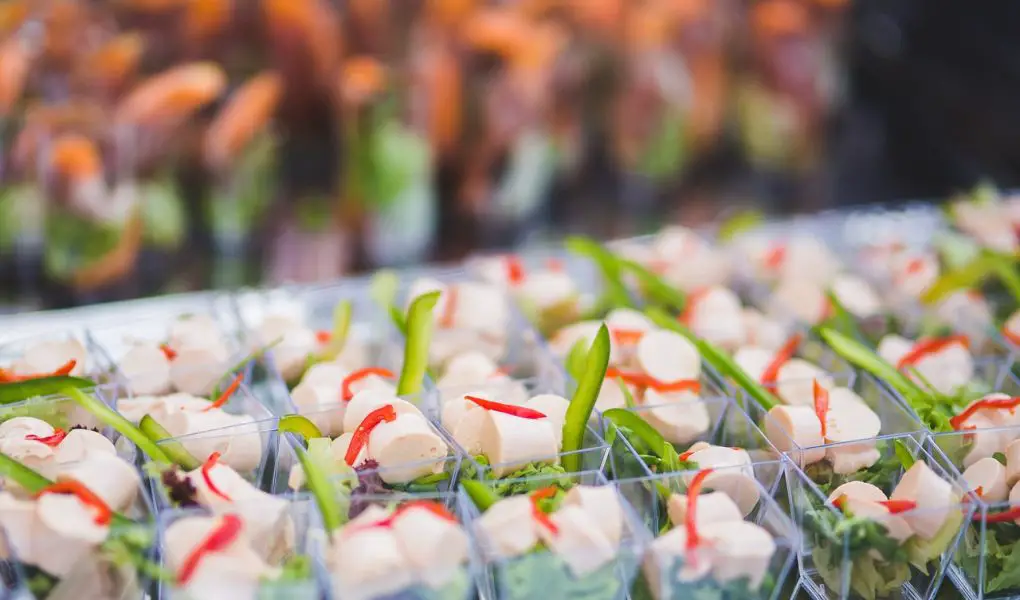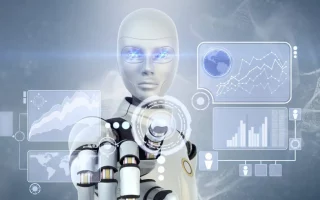Catering events can be complex and challenging to execute successfully. As a chef, you need to ensure that everything runs smoothly, from menu planning to food preparation, to service, to clean-up.
Fortunately, with the help of advanced technology, chefs can now leverage artificial intelligence (AI) tools to streamline their catering event planning and execution process.
In this blog post, we’ll explore 5 ways ChatGPT can help chefs plan and execute successful catering events.
1. Menu Planning.
Menu planning is a critical aspect of catering events, and it can be challenging to create a menu that meets the client’s needs, tastes great, and is feasible within your budget. With the help of ChatGPT, chefs can leverage AI technology to streamline the menu planning process.
ChatGPT can generate customized menus based on client preferences, dietary requirements, and other factors. For example, if a client requests a vegan menu, ChatGPT can provide a list of vegan dishes that are popular with customers.
If a client has a specific food allergy or intolerance, ChatGPT can suggest alternative ingredients that can be used in their dishes.
Moreover, ChatGPT can provide chefs with recommendations on popular dishes, ingredients, and preparation techniques, allowing them to create a unique and memorable menu that stands out from the competition. This information can be invaluable for chefs who are looking to create a menu that is both delicious and innovative.
Another benefit of using ChatGPT for menu planning is that it can help chefs manage their costs. ChatGPT can suggest affordable ingredients and dishes that can help chefs stay within their budget while still providing high-quality food to their customers.
Overall, menu planning can be a time-consuming and challenging aspect of catering events. However, with the help of ChatGPT, chefs can streamline the process, create customized menus, and manage their costs effectively. This allows them to focus on providing their customers with delicious, high-quality food that will make their event a success.
2. Ingredient Sourcing.
Sourcing high-quality ingredients is a crucial aspect of catering events, as the quality of the food served can make or break the success of an event.
With the help of ChatGPT, chefs can leverage AI technology to identify the best local suppliers, farms, and distributors for their ingredients based on price, quality, and availability.
ChatGPT can provide chefs with a list of suppliers in their area that offer the ingredients they need. For example, if a chef needs to source high-quality seafood for a catering event, ChatGPT can suggest local suppliers that offer sustainable seafood options.
Additionally, ChatGPT can help chefs compare prices between different suppliers to ensure they are getting the best deal. This can help chefs manage their costs effectively and stay within their budget.
Another benefit of using ChatGPT for ingredient sourcing is that it can help chefs ensure that they are using fresh, high-quality ingredients. ChatGPT can provide information on the availability of certain ingredients, allowing chefs to adjust their menu accordingly.
This can be particularly helpful for chefs who want to incorporate seasonal ingredients into their dishes.
Finally, ChatGPT can help chefs manage their inventory by generating a shopping list based on the ingredients needed for the event. This can help chefs keep track of all the ingredients they need and ensure that they don’t miss anything.
In conclusion, ingredient sourcing is a crucial aspect of catering events, and ChatGPT can be an invaluable tool for chefs looking to streamline the process.
By identifying the best local suppliers, farms, and distributors, comparing prices, and ensuring that chefs are using fresh, high-quality ingredients, ChatGPT can help chefs create delicious, high-quality food that will make their catering event a success.
3. Food Preparation.
Food preparation is a critical aspect of catering events, and it requires careful planning and execution to ensure that the food is cooked and served to perfection. With the help of ChatGPT, chefs can leverage AI technology to streamline their food preparation process.
ChatGPT can provide chefs with step-by-step instructions on how to prepare each dish on the menu. This can be particularly helpful for chefs who are cooking for a large group of people and need to ensure that everything is prepared correctly. ChatGPT can give you information on cooking times, temperatures, and other important details that can help chefs cook the food to perfection.
Moreover, ChatGPT can help chefs optimize their cooking techniques to ensure that the food is cooked consistently and efficiently. For example, ChatGPT can suggest alternative cooking methods, such as grilling or roasting, that can help chefs save time and energy while still producing high-quality food.
Another benefit of using ChatGPT for food preparation is that it can help chefs manage their time effectively. ChatGPT can generate a timeline for food preparation, indicating when each dish should be started and how long it will take to cook. This can help chefs ensure that everything is ready on time and that the food is served at its best.
Finally, ChatGPT can provide chefs with nutritional information for each dish, helping them cater to the specific dietary needs of their clients. This can be particularly helpful for chefs who need to prepare meals for clients with specific dietary requirements, such as gluten-free or low-fat diets.
Food preparation is a critical aspect of catering events, and ChatGPT can be an invaluable tool for chefs looking to streamline the process. By giving step-by-step instructions, optimizing cooking techniques, managing time effectively, and providing nutritional information, ChatGPT can help chefs create delicious, high-quality food that will make their catering event a success.
4. Service and Operations.
Service and operations are important aspects of catering events, and they require careful planning and execution to ensure that everything runs smoothly. With the help of ChatGPT, chefs can leverage AI technology to streamline their service and operations process.
ChatGPT can provide chefs with recommendations on how to optimize their staffing and logistics. For example, if a chef needs to prepare and serve food for a large number of people, ChatGPT can suggest strategies for managing the flow of people and food, such as setting up a buffet or arranging for multiple serving stations.
Moreover, ChatGPT can help chefs plan for potential issues that may arise during the event. For example, ChatGPT can provide information on how to handle food allergies or dietary restrictions, how to troubleshoot equipment issues, and how to manage unexpected changes in the event schedule.
Another benefit of using ChatGPT for service and operations is that it can help chefs manage their inventory and supplies. ChatGPT can generate a shopping list for supplies and equipment, helping chefs ensure that they have everything they need for the event.
ChatGPT can also give you information on how to organize and store supplies and equipment to optimize their use.
Finally, ChatGPT can provide chefs with information on industry best practices and standards for catering events. This can help chefs ensure that they are meeting or exceeding the expectations of their clients and providing high-quality service and operations.
Service and operations are critical aspects of catering events, and ChatGPT can be an invaluable tool for chefs looking to streamline the process.
By providing recommendations on staffing and logistics, planning for potential issues, managing inventory and supplies, and providing information on industry best practices, ChatGPT can help chefs create a successful catering event that meets the needs of their clients.
5. Customer Engagement.
Customer engagement is a crucial aspect of catering events, as it can help chefs build relationships with their clients and ensure that their needs and preferences are met.
With the help of ChatGPT, chefs can leverage AI technology to enhance their customer engagement efforts.
ChatGPT can help chefs personalize their menu and service offerings based on the preferences and needs of their clients.
For example, if a chef is catering for a client who prefers vegan dishes, ChatGPT can suggest vegan-friendly options that will satisfy their preferences. ChatGPT can also provide information on customer feedback and reviews, allowing chefs to understand what their clients liked and didn’t like about their previous events.
Moreover, ChatGPT can help chefs communicate with their clients more effectively. ChatGPT can provide suggestions on how to structure and format emails or proposals, making it easier for chefs to communicate with their clients and convey important information.
Another benefit of using ChatGPT for customer engagement is that it can help chefs stay up-to-date with the latest industry trends and innovations.
ChatGPT can give you information on emerging food trends, new ingredients, and cutting-edge techniques, allowing chefs to stay ahead of the curve and offer unique and innovative dishes to their clients.
Finally, ChatGPT can help chefs build relationships with their clients by providing personalized recommendations and suggestions.
For example, ChatGPT can suggest wine pairings for specific dishes or recommend complementary menu items that will enhance the overall dining experience for clients.
Customer engagement is a critical aspect of catering events, and ChatGPT can be an invaluable tool for chefs looking to enhance their customer engagement efforts.
By personalizing menu and service offerings, improving communication, staying up-to-date with industry trends, and providing personalized recommendations, ChatGPT can help chefs build relationships with their clients and create successful catering events.
Conclusion.
Catering events can be challenging to plan and execute successfully.
However, with the help of AI tools like ChatGPT, chefs can streamline their process and create unique, memorable experiences for their customers.
By leveraging ChatGPT for menu planning, ingredient sourcing, food preparation, service and operations, and customer engagement, chefs can save time, reduce costs, and create unforgettable catering events.





